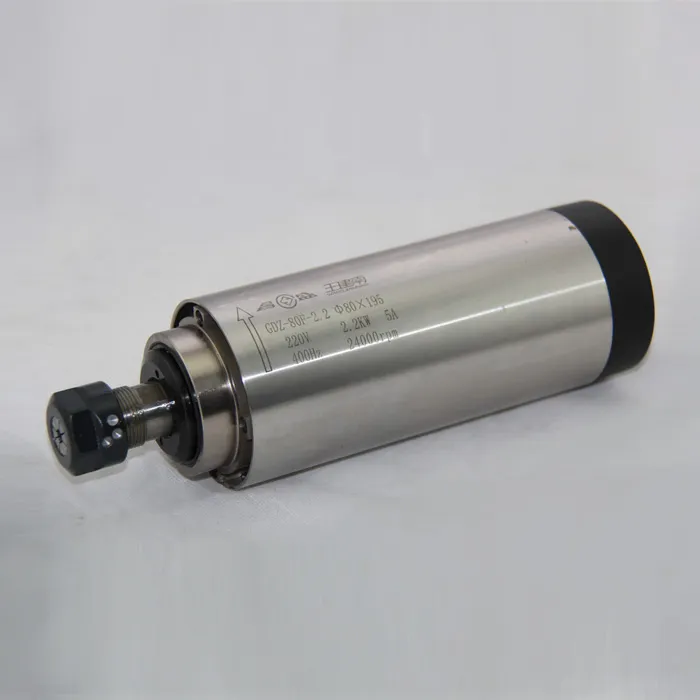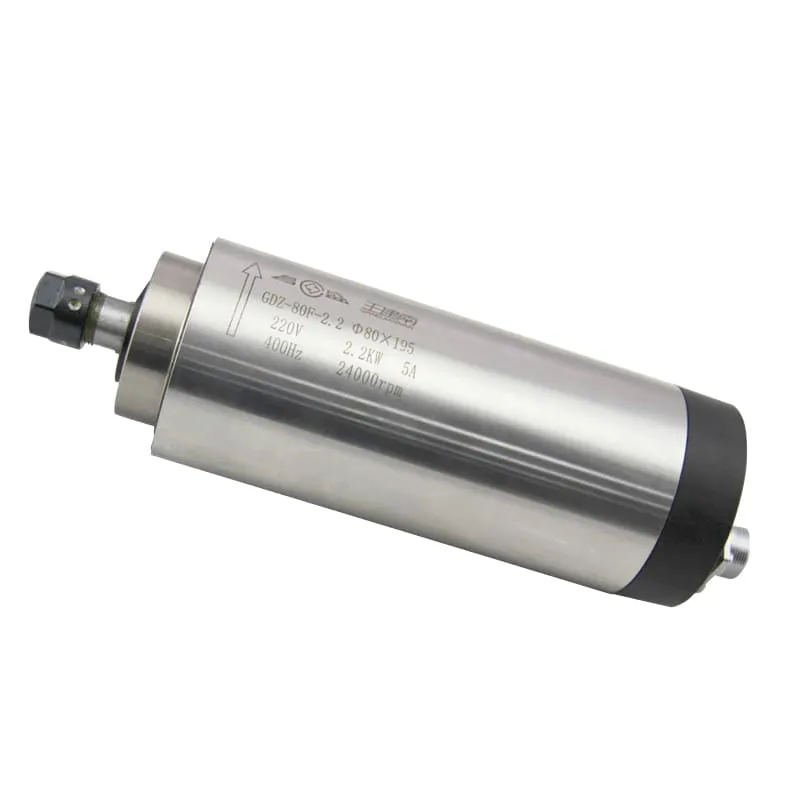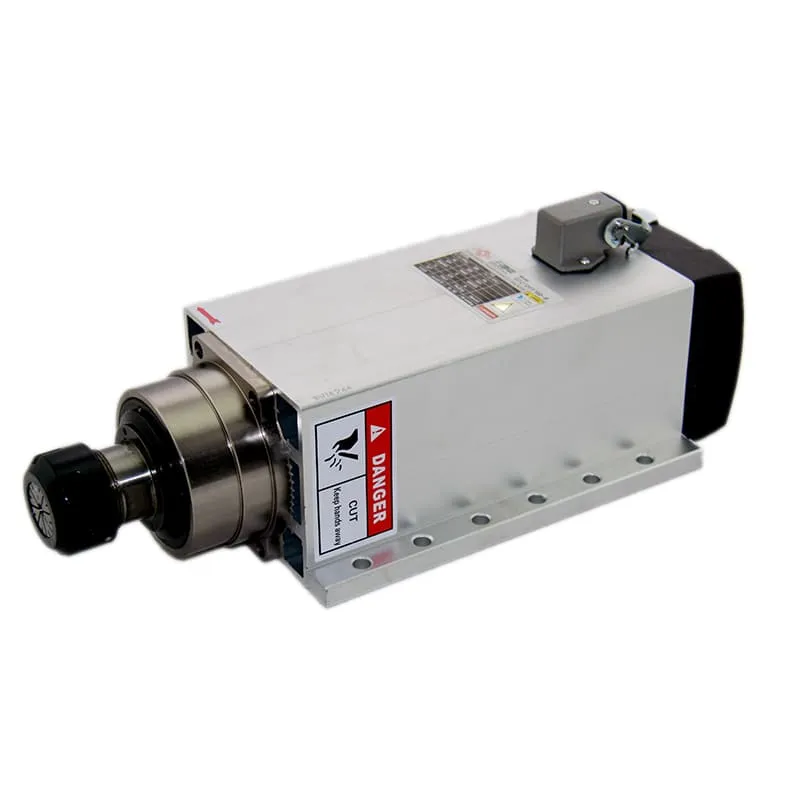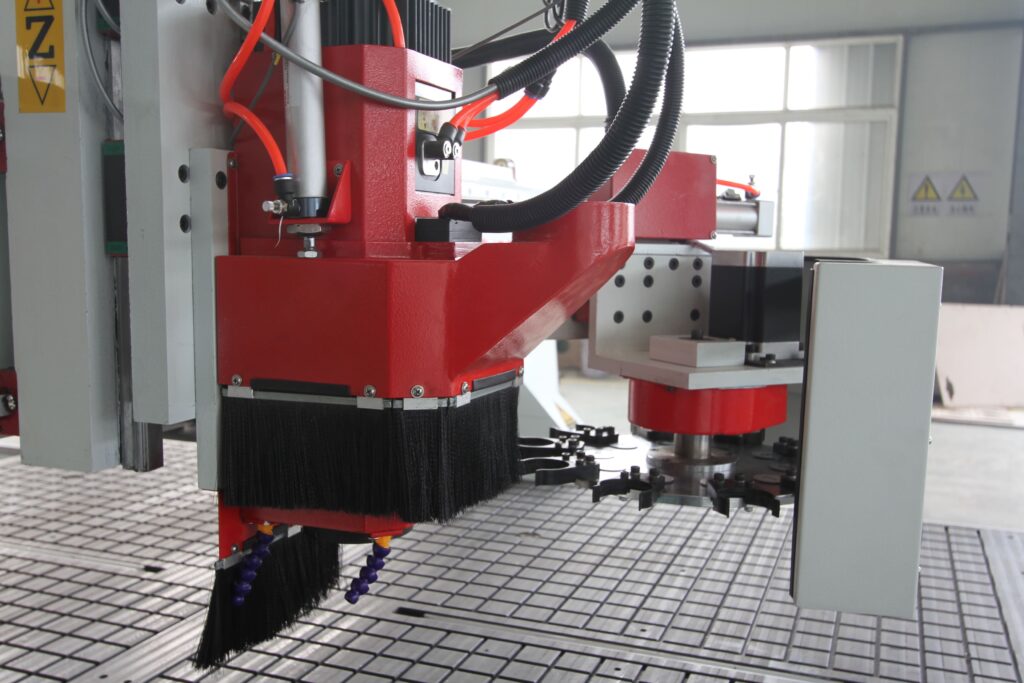Are CNC Machines Profitable?
In today’s rapidly evolving manufacturing landscape, CNC (Computer Numerical Control) machines have become a cornerstone of modern production. But for many entrepreneurs and small business owners, a crucial question lingers: are CNC machines profitable? This comprehensive guide will delve into the world of CNC machining, exploring its potential for profitability and the factors that influence success in this dynamic field.
Understanding CNC Machines and Their Applications
CNC machines are automated tools that create products based on computer-programmed instructions. These versatile machines can produce a wide range of items, from intricate jewelry to large industrial components. Their precision, speed, and consistency make them invaluable in industries such as aerospace, automotive, and consumer goods manufacturing.
One of the most popular types of CNC machines for small businesses is the CNC router. For instance, a 2.2KW ER20 Air-Cooled Spindle can be the heart of a profitable CNC router setup, capable of working with various materials including wood, plastic, and soft metals.

The Initial Investment: Understanding the Costs
Starting a CNC machining business requires a significant upfront investment. Here’s a breakdown of potential costs:
- CNC Machine: $5,000 – $100,000+ (depending on size and capabilities)
- Computer and Software: $2,000 – $10,000
- Tools and Accessories: $1,000 – $5,000
- Workspace Setup: $2,000 – $20,000
- Training: $1,000 – $5,000
While these numbers might seem daunting, it’s important to view them as an investment in your business’s future. Many successful CNC businesses start small, perhaps with a single machine like a CNC router equipped with a 1.5KW ER11 Round Air-Cooled Spindle, and gradually expand as they become more profitable.
Factors Influencing Profitability
Several key factors determine whether a CNC machine business will be profitable:
- Market Demand: Research your local market to ensure there’s sufficient demand for CNC-produced products.
- Niche Selection: Specializing in a particular niche can help you stand out and command higher prices.
- Operational Efficiency: Maximizing machine uptime and minimizing waste is crucial for profitability.
- Pricing Strategy: Balancing competitive pricing with healthy profit margins is essential.
- Marketing and Customer Acquisition: Effective marketing can help you attract and retain customers.
- Skill Level: Your proficiency in operating the machine and creating designs affects both quality and efficiency.
Profitable CNC Machine Business Ideas
There are numerous ways to turn CNC machining into a profitable venture. Here are some popular business ideas:
- Custom Signage: Create personalized signs for businesses and homes.
- Furniture Making: Produce unique, custom-designed furniture pieces.
- Prototype Development: Offer rapid prototyping services for inventors and product designers.
- Automotive Parts: Manufacture custom or replacement parts for vehicles.
- Artistic Creations: Produce sculptures, decorative items, or wall art.
- Educational Models: Create 3D models for schools and educational institutions.
For businesses focusing on precision work, a 4.5KW ER32 Air-Cooled Spindle can provide the power and accuracy needed for complex projects.

Maximizing Profitability: Tips and Strategies
To ensure your CNC machine business is as profitable as possible, consider these strategies:
- Optimize Machine Usage: Keep your machine running as much as possible to maximize output.
- Diversify Your Offerings: Expand your product range to appeal to a wider customer base.
- Invest in Quality Tools: High-quality tools like a 3.5KW ER20 Air-Cooled Spindle can improve efficiency and reduce downtime.
- Continuous Learning: Stay updated with the latest CNC technologies and techniques.
- Build Strong Customer Relationships: Repeat customers can provide a steady income stream.
- Efficient Material Sourcing: Develop relationships with suppliers to get the best prices on materials.
Case Studies: Successful CNC Machine Businesses
Let’s look at some real-world examples of profitable CNC machine businesses:
- Wood Art Creations: A small business in Oregon started with a single CNC router and now produces custom wooden signs and art pieces, generating over $200,000 in annual revenue.
- Precision Parts Manufacturing: A machine shop in Michigan specializes in creating custom parts for the automotive industry, using high-powered CNC machines to achieve annual profits exceeding $500,000.
- Educational Model Maker: A one-person operation in California creates detailed anatomical models for medical schools, turning a $50,000 investment in CNC equipment into a $150,000 yearly profit.
These success stories demonstrate that with the right approach, CNC machines can indeed be highly profitable.
Challenges and How to Overcome Them
While CNC machining can be profitable, it’s not without challenges. Here are some common obstacles and strategies to overcome them:
- High Initial Costs: Start small and reinvest profits to grow gradually.
- Technical Complexity: Invest time in learning and consider hiring skilled operators.
- Market Competition: Differentiate your business through unique designs or exceptional service.
- Maintenance Issues: Develop a regular maintenance schedule to prevent costly breakdowns.
- Material Waste: Use software to optimize material usage and reduce waste.
The Future of CNC Machining: Trends and Opportunities
The CNC machining industry is continually evolving, presenting new opportunities for profitability. Some emerging trends include:
- Integration with 3D Printing: Combining CNC machining with additive manufacturing for hybrid production.
- Artificial Intelligence: AI-powered optimization of toolpaths and machine settings.
- Sustainable Manufacturing: Growing demand for eco-friendly production methods.
- Customization at Scale: Increased capability to produce customized products efficiently.
- Remote Operation: Advancements in IoT enabling remote monitoring and operation of CNC machines.
Staying ahead of these trends can give your CNC business a competitive edge and boost profitability.
Creating a Business Plan for Your CNC Machine Venture
A solid business plan is crucial for ensuring the profitability of your CNC machine business. Here’s a basic outline to get you started:
- Executive Summary: Brief overview of your business concept.
- Market Analysis: Research on your target market and competition.
- Products and Services: Detailed description of what you’ll offer.
- Marketing Strategy: How you’ll attract and retain customers.
- Financial Projections: Estimated costs, revenue, and profitability.
- Operational Plan: Day-to-day running of the business, including equipment and staffing needs.
Remember, your business plan should be a living document, regularly updated as your business grows and evolves.
Pricing Your CNC Services for Profitability
Determining the right pricing strategy is crucial for maintaining profitability. Consider these factors when setting your prices:
- Material costs
- Machine time
- Design complexity
- Labor costs
- Overhead expenses
- Desired profit margin
A common formula is:
Price = (Material Cost + Machine Time + Labor) x (1 + Overhead %) x (1 + Profit Margin %)Regularly review and adjust your pricing to ensure continued profitability.
Marketing Your CNC Machine Business
Effective marketing is key to attracting customers and ensuring the profitability of your CNC machine business. Consider these strategies:
- Online Presence: Create a professional website showcasing your work.
- Social Media Marketing: Use platforms like Instagram to display your creations.
- Local Networking: Attend trade shows and join local business associations.
- Collaboration: Partner with designers or other businesses for mutual promotion.
- Customer Referrals: Implement a referral program to encourage word-of-mouth marketing.
Remember, the quality of your work is your best advertisement. Investing in top-notch equipment like a 6KW ER32 Air-Cooled Spindle can help ensure your products stand out in the market.

Scaling Your CNC Machine Business
As your business grows, you may consider scaling up to increase profitability. This could involve:
- Adding More Machines: Increase production capacity to take on more orders.
- Hiring Employees: Bring in skilled operators to run machines and manage orders.
- Expanding Your Service Offerings: Add complementary services like design or finishing.
- Automating Processes: Implement systems to streamline order processing and production.
Remember, scaling should be done carefully to ensure it leads to increased profitability rather than just increased costs.
FAQs
How much can I earn with a CNC machine business?
Earnings can vary widely depending on factors like your niche, location, and business model. Some small CNC businesses report annual profits of $50,000 to $200,000, while larger operations can earn significantly more.
What’s the average return on investment for a CNC machine?
With proper management, many businesses report recouping their initial investment within 1-3 years. However, this can vary based on factors like machine utilization and market demand.
Do I need prior experience to start a CNC machine business?
While prior experience is helpful, it’s not absolutely necessary. Many successful CNC business owners learned on the job. However, you should be prepared to invest time in learning the technical aspects of CNC operation and design.
What types of businesses benefit most from CNC machines?
Businesses that require precision manufacturing, customization, or small to medium production runs often benefit most from CNC machines. This includes industries like aerospace, automotive, medical device manufacturing, and custom furniture making.
How do I choose the right CNC machine for my business?
Consider factors like the materials you’ll be working with, the size and complexity of your typical projects, your budget, and your space constraints. It’s often wise to start with a versatile machine that can handle a range of projects.
Conclusion
Are CNC machines profitable? The answer is a resounding yes – with the right approach, market, and business strategy. While the initial investment can be significant, the potential for profitability is substantial. CNC machines offer the ability to create high-quality, precision products efficiently, opening up a world of business opportunities.
Success in the CNC machining business requires a combination of technical skill, business acumen, and creative thinking. By understanding your market, optimizing your operations, and continually adapting to new trends and technologies, you can build a thriving and profitable CNC machine business.
Remember, profitability doesn’t happen overnight. It requires patience, persistence, and a willingness to learn and adapt. But for those who are passionate about creating and have an entrepreneurial spirit, a CNC machine business can be both financially rewarding and personally fulfilling.
Whether you’re just starting out with a basic setup or looking to upgrade to a high-powered machine like the 7.5KW ER32 Air-Cooled Spindle, the key to profitability lies in your ability to leverage these powerful tools to meet market demands efficiently and creatively.
In the end, the profitability of CNC machines is not just about the technology itself, but about how you use it to bring value to your customers and efficiency to your operations. With the right approach, CNC machining can be the foundation of a successful and profitable business venture.

